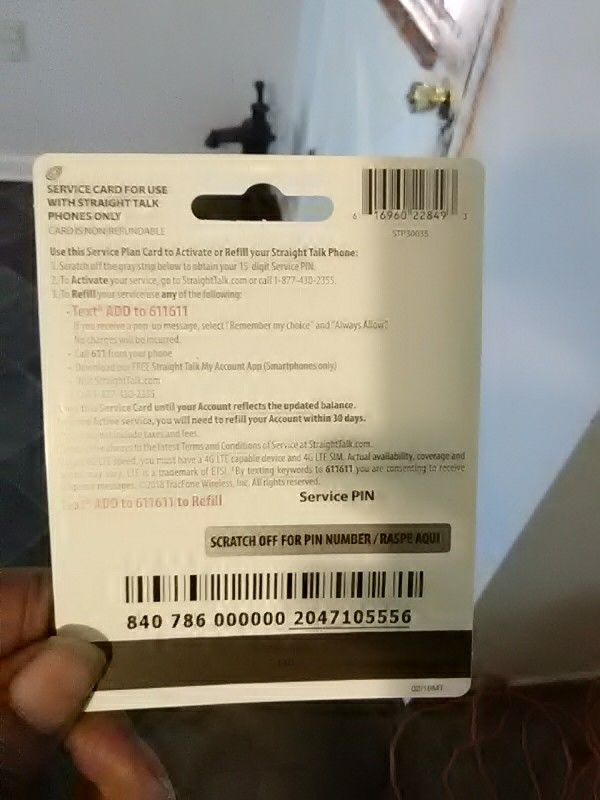

- #Straight talk pin generator generator
- #Straight talk pin generator mod
- #Straight talk pin generator registration
- #Straight talk pin generator verification

Reinitialize the recordset object, if you use one both for adding and checkingĬlose the recordet object(if a separate is used for checking). If the returned recordset is not empty return False else return true
#Straight talk pin generator generator
withĭateexpire = dateadd("", dateAdd ) 'I am not sure about the exact parameters, but check it in the VB Help(F1)ġ.open the recordset(you may use the old one, but you have to reinitialize it)Ģ.for each record check if field "PIN" equals the new pin you want to add.Īn alternative to iteration of the table is to apply the filter in the SQL string you use : Straight Talk My Account Hack generator just require 3 minutes to get unlimited resources and get free In-App Purchases 2018. for each generated pin, iterate the table to check if it already existsĤ.1 pin does not exist-> add to table. The moral of the story is don't use Rnd for anything like this unless only a few pins are required and security of the pins is not so important (i.e. And then several of these pins could be the same. So if left in sync with Rnd the max possible pins would be 8388608, if knocked out of sync then the max possible would be 16777216. The first loop of the Rnd sequence will produce 1677721 pins with a remainder of 6. If you call Randomize every time then the sequence will repeat much earlier and more often.Įdit: Oopsy, the above logic is flawed in the sense that I was not dividing by 10.

If once every 16777216 calls of Rnd you make an extra call (outside the generator function) you can squeeze that up to 16777216 * 10
#Straight talk pin generator mod
So if you are using Rnd to generate each of the ten digits then the exact sequence will reproduce after 16777216 * 5 calls (16777216 mod 10 = 6, next sequence the remainder will be 2 then 8,4,0,6.) This is probably more than you want to tackle, but it does illustrate the possibilities.Ĭode: N = (N * 1140671485 + 12820163) MOD 16777216The output being N / 16777216 Go to 5 digits, and you'd have over 200 million possible combinations. If you wanted to do something simple like a 4-digit pin, allowed uppercase and lowercase, numbers, but no vowels etc., you could generate a pin that has almost 4.5 million possible combinations.
#Straight talk pin generator verification
This can be used for additional verification that the code is OK. In my case, I even calculate a checksum and two of the characters equate to the checksum value. Similar for the number 1 and the letters I and L. These include non-printing characters, all vowels (don't want to accidently spell a foul word), and things like zero (0), and the letter Oh (O) as they can be misread. In my case I add the dash (-) as shown for the 5th, 10th, and 15th character. Just loop for as many characters as you want. I just used a random generator to create an Ascii value, convert it to it's character equivalent, and add it to the string, one letter at a time.
#Straight talk pin generator registration
I have a program which creates a registration number that is automatically generated.


 0 kommentar(er)
0 kommentar(er)
